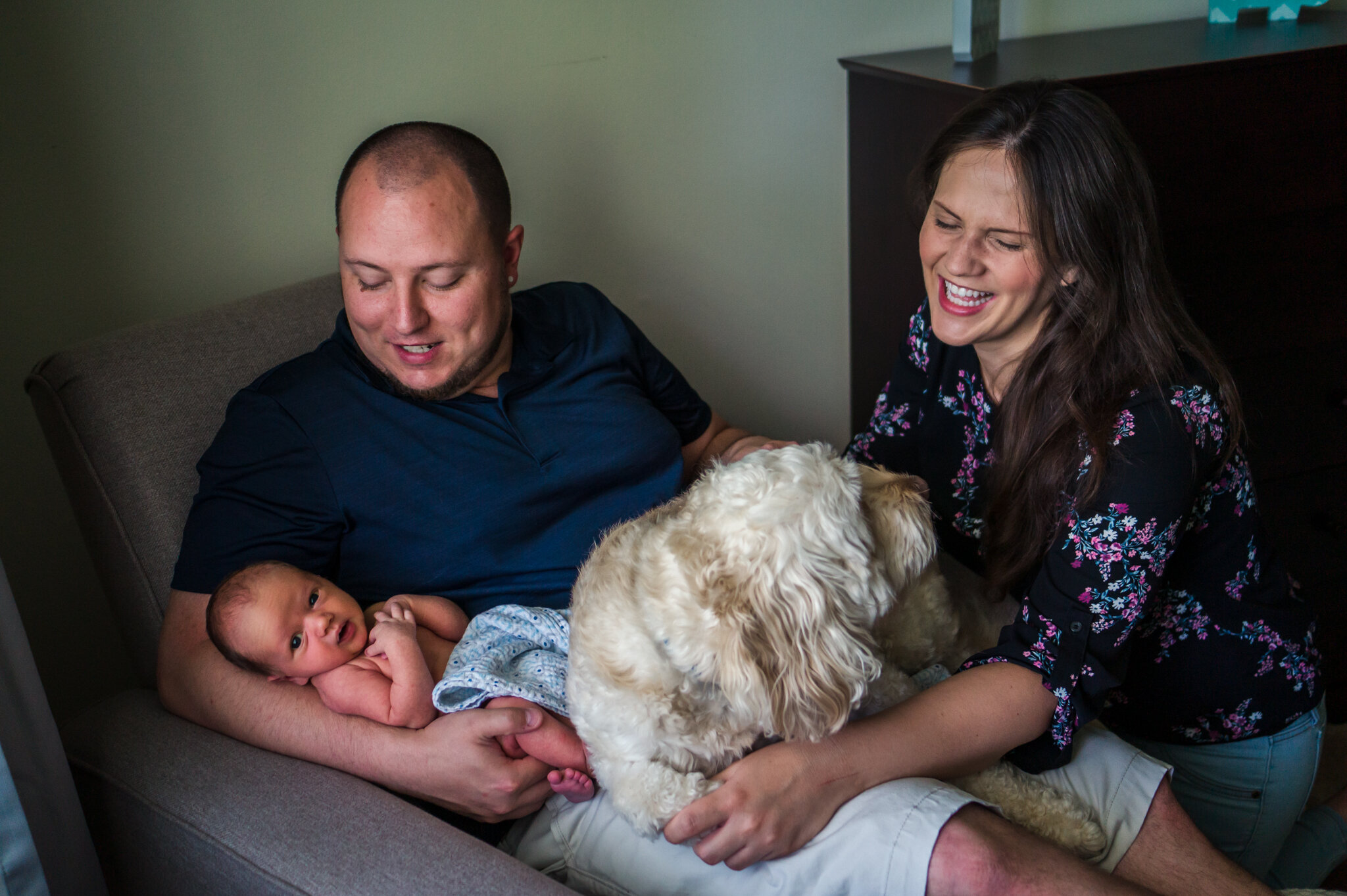Amanda and David moved to the Milwaukee area for employment purposes after Amanda was finished with her time in the military. They were thrilled to be adding to their family after having so many of their own adventures as a couple. Knowing they didn’t have much support locally motivated them to look into what options and classes were available in the area to ensure they were as prepared as possible for their transition into parenthood.
Amanda’s pregnancy was fairly calm and straightforward until about the midway point. Like so many others, they were thrown a major curve ball when Covid hit and hospital policies shifted and many placed restrictions on visitors or extra support people. They were established with a provider at Froedtert that they both really enjoyed working with, the downside is that they are one of the hospitals with tightened restrictions.

.
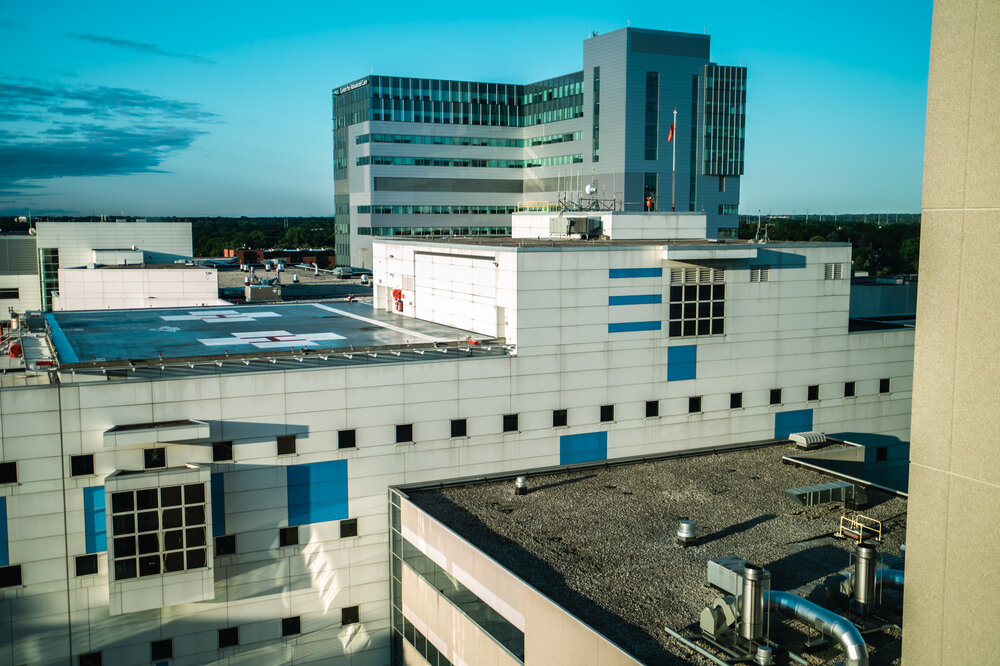
At this stage I provided information and options that included switching providers and systems in order to ensure that my physical presence would be an option. I also included ways we could adapt our plan in order to stay with her current provider and be supported without me physically there. Amanda and David talked it over, she also talked to her doctor who was in support of her switching providers and was realistic about not seeing a shift in Covid policies by her due date in early August.
Ultimately Amanda and David felt comfortable staying with their provider and adjusting our plans for support and storytelling. We knew David would be the main source of physical support either way and they were taking a Bradley Method birthing class taught by Kinderhaven Birth and Family. They learned numerous hands on coping techniques and had a much deeper understanding of the birthing process overall. They felt extremely confident knowing that I would be available to them virtually as well.
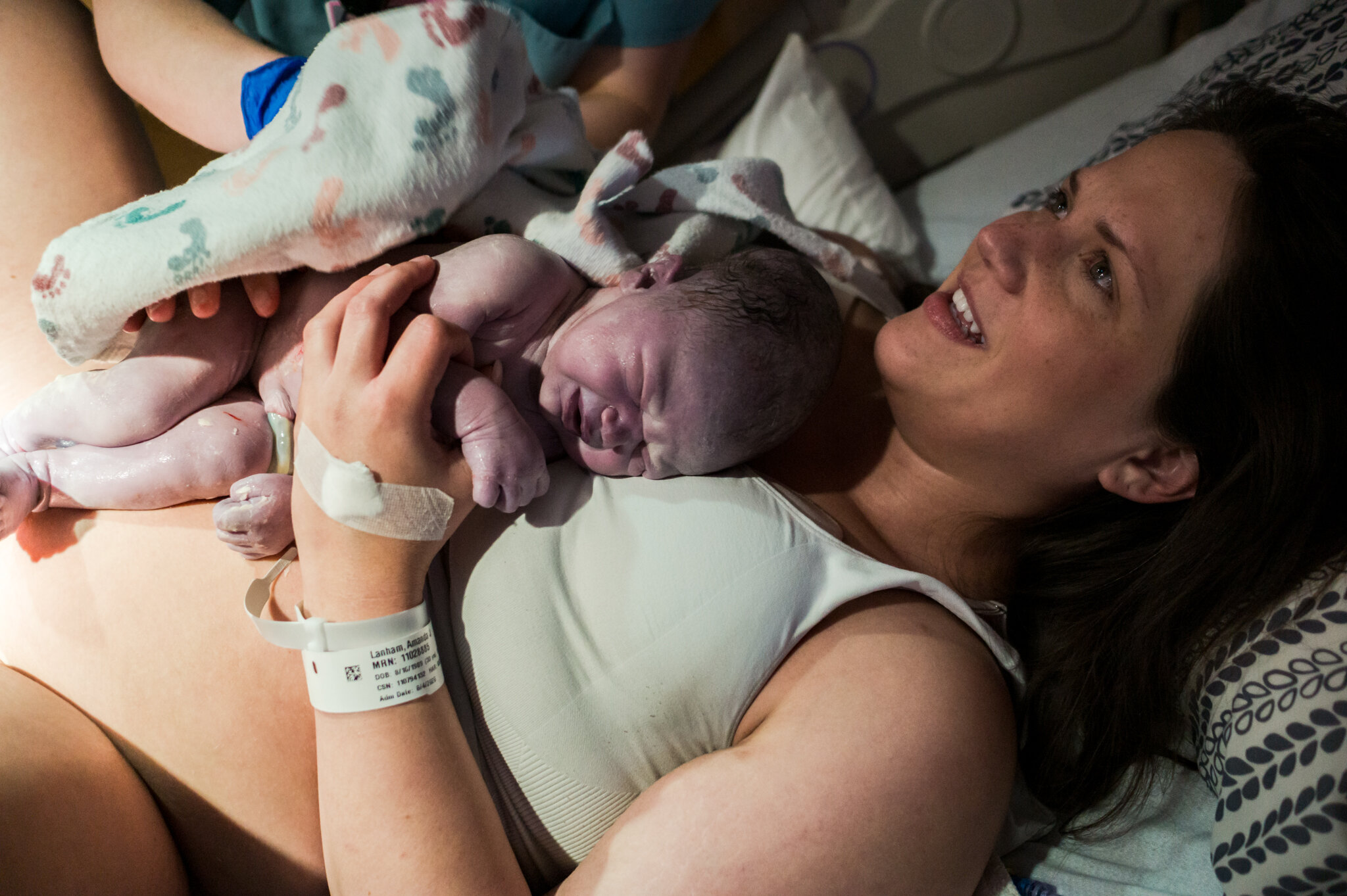
.
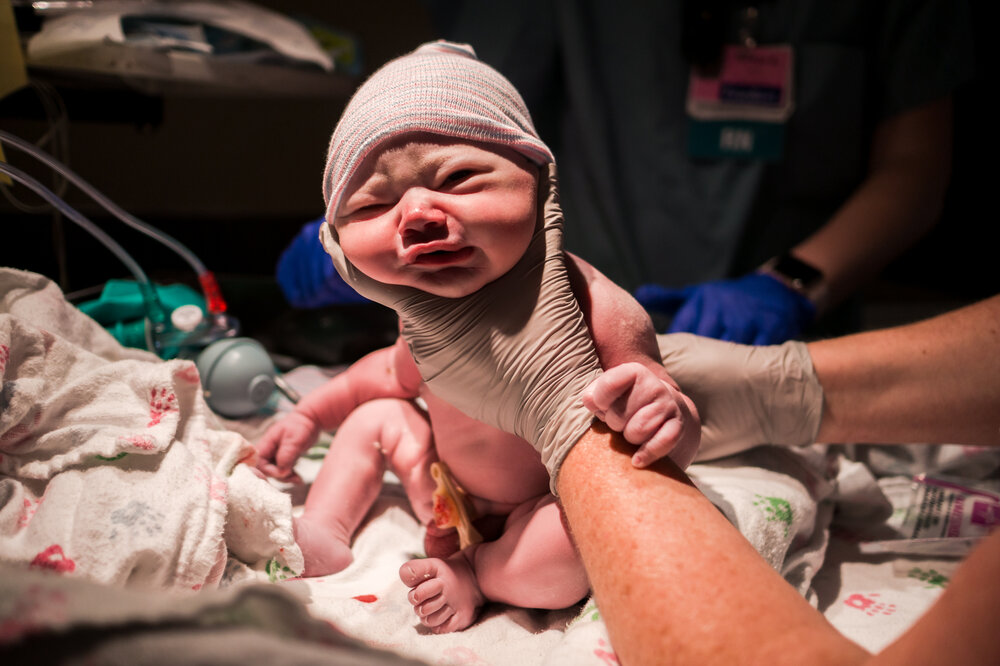
As Amanda neared her due date she put together a binder of information to help her and David during labor. This included comfort techniques, pushing positions, and other information they might want to look at in the moment. Knowing I wouldn’t be there to document their birth story, I prepared a “cheat sheet” that went over basic camera settings along with what moments to look for. The plan was for me to join them at home if labor started on its own, then David would take over with my backup camera once they went to the hospital. The closer she got to her due date, the more she thought about her comfort level going beyond that point. Amanda decided to opt for an induction at 40+1, she felt it was the best option for her.
They got settled into their room early in the morning and started with the cervical ripening process with cytotec. It was a fairly slow process, Amanda was able to use the peanut ball, rest, and eat throughout the day. Labor was slow to pick up overnight, they decided to break Amanda’s waters around 4am and that’s when things really started to intensify. Shortly after that Amanda had her epidural placed, she started making more progress but was still feeling a lot more than she anticipated. It seemed that her epidural didn’t take evenly, shortly after the anesthesiologist adjusted her epidural she started feeling a bit more relief. Her body also progressed much faster and was ready to start the pushing stage soon after.

.
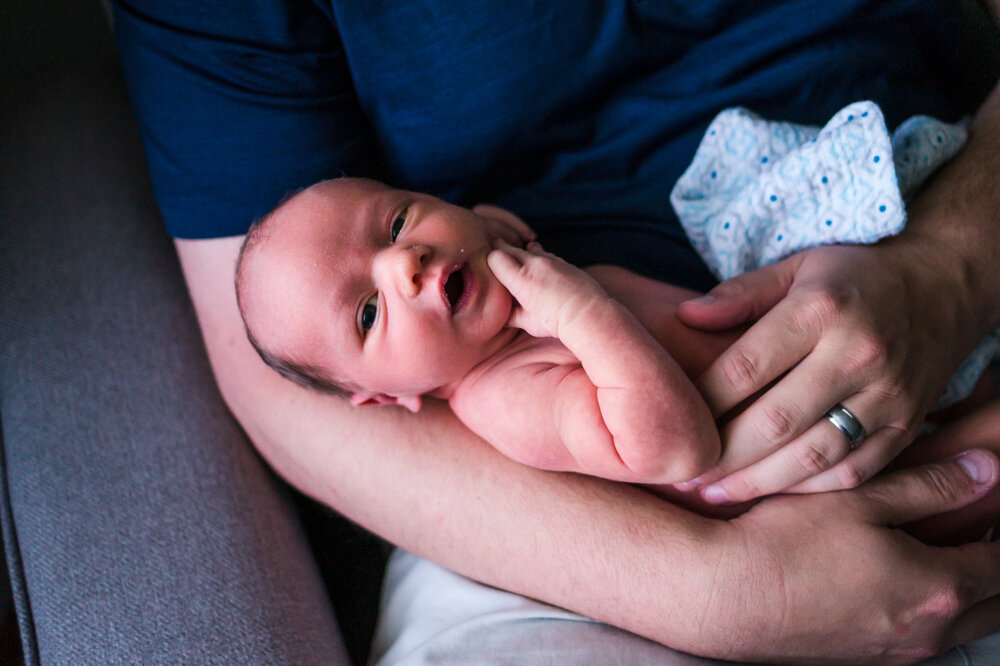
It was a long night but Amanda dug deep and found the extra strength to power through. Even though her epidural was adjusted shortly before, she was pretty mobile and was able to push on her hands and knees for a bit and made a good amount of progress. Things changed suddenly when Amanda’s doctor detected that they were dealing with shoulder dystocia and needed to act swiftly. The nurses helped get Amanda in a position that allowed Amanda’s doctor to utilize the “McRoberts maneuver” to help baby’s shoulder become unstuck in a timely manner. David and Amanda were relieved to finally welcome their son Archer into the world. He needed some assistance within the first few minutes of birth to stabilize, likely because of the shoulder dystocia. From there they were able to spend the next few days in the hospital bonding.
The first couple of weeks postpartum had their ups and downs, Amanda and David took it in stride. While David was on leave they prioritized each other’s need for sleep and they found a routine that worked for both of them. When they were discharged from the hospital they were on the lookout for jaundice since Archer was having trouble with his latch. Amanda was mostly pumping and supplementing with formula as needed. They were able to work with the lactation consultant at their pediatrician’s office to eventually work toward consistent latching and ditched the formula as Amanda’s supply grew more established. There were a few health concerns with both Archer and Amanda but with time and follow up testing their concerns were put to rest and they were both given a clean bill of health. It was stressful to navigate but with a little additional support they found their way through. Now they get to continue enjoying their adventures as a family of three!
